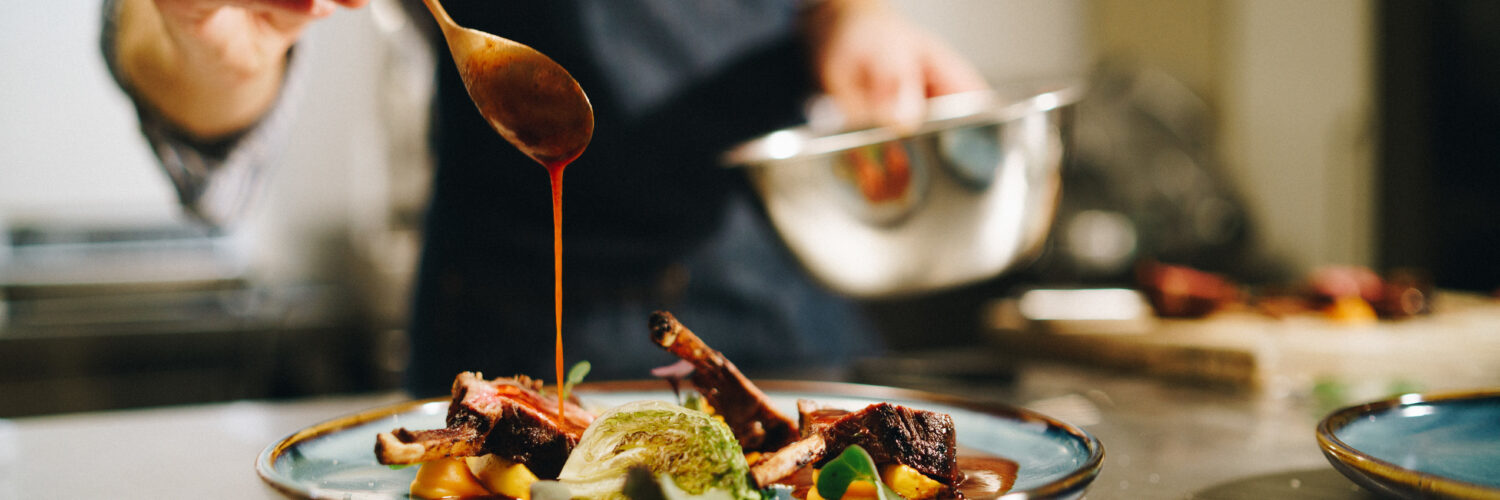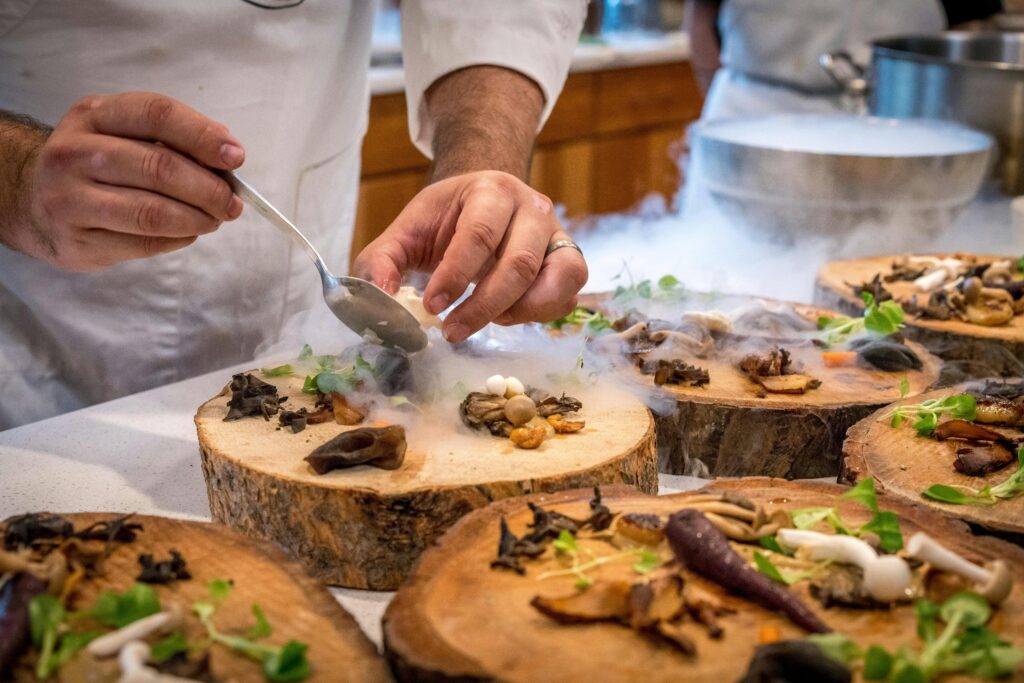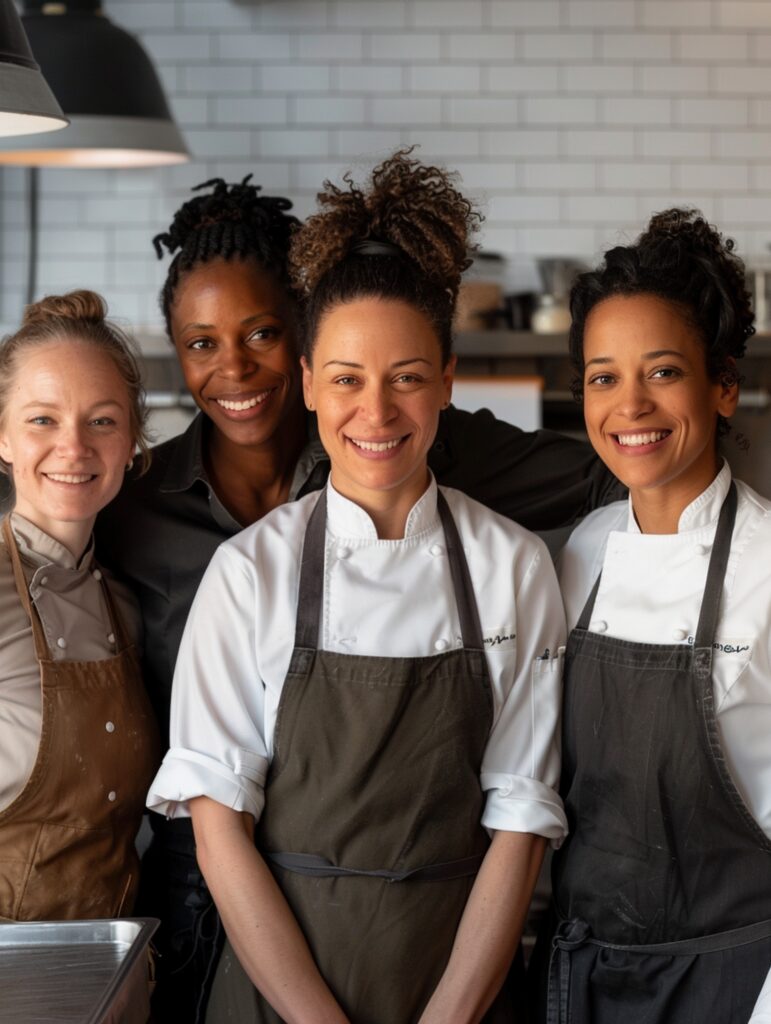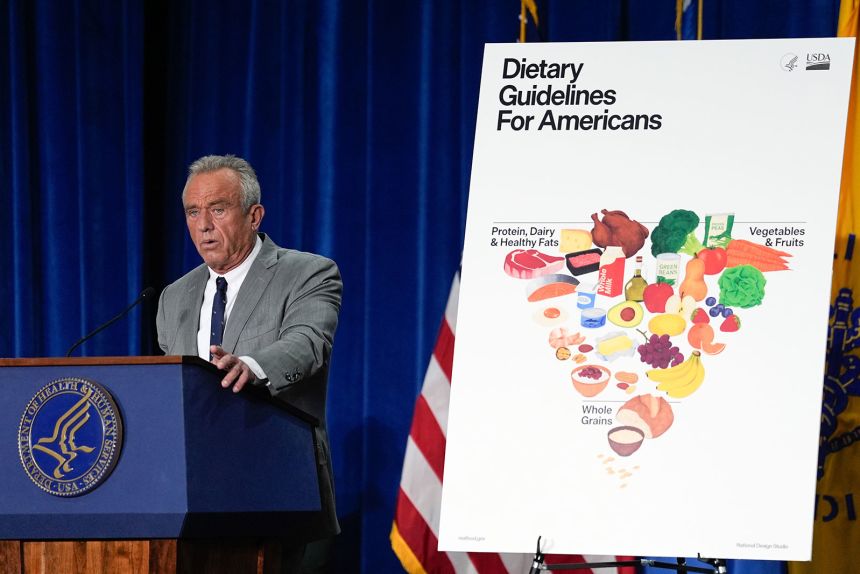When running a restaurant, success hinges on more than just a great menu or a bustling dining room. Behind the scenes, savvy restaurateurs protect their business with comprehensive insurance coverage that shields them from financial loss, liability, and unexpected setbacks. Choosing the best restaurant business insurance policy is not a one-size-fits-all decision. It requires careful consideration of the unique risks your establishment faces, the size and nature of your operation, and the legal requirements in your state.
This guide will explore the key factors every restaurant owner should consider when selecting an insurance policy, explain the types of coverage available, and show you how to get a restaurant insurance quote online from a trusted provider like CIS, Commercial Insurance Services.
Understanding the Risks of Restaurant Ownership
Operating a restaurant is inherently risky. From kitchen fires and foodborne illnesses to slip-and-fall accidents and cyberattacks, restaurant owners must be prepared for a range of potential liabilities. Without adequate coverage, a single incident can result in significant financial losses or even permanent closure.
Common risks include:
- Property damage from fire, flooding, or vandalism
- Employee injuries and workers’ compensation claims
- Customer injuries on premises
- Equipment breakdowns
- Loss of inventory due to spoilage or power outages
- Business interruption from unforeseen events
- Employment-related lawsuits
- Cybersecurity breaches affecting payment systems
Understanding these risks is the first step in determining what coverage your restaurant needs.
How to Choose the Right Insurance Policy
With so many types of coverage available, it can be overwhelming to select the right policy. Here’s how restaurant owners can make the best decision:
1. Assess Your Specific Risks
The type of cuisine, the size of your staff, whether you serve alcohol, your location, and the volume of foot traffic all influence your risk profile. A fast-casual burger joint faces different risks than a fine-dining bistro or a food truck.
2. Understand Legal Requirements
Some insurance types are legally mandated, such as workers’ compensation. Be aware of the regulations in your state and industry to ensure compliance.
3. Bundle Policies for Cost Savings
Many insurers, including CIS, offer Business Owner’s Policies (BOPs) that bundle general liability, commercial property, and business interruption coverage at a lower premium.
4. Work with a Specialist Broker
Choosing a provider who specializes in restaurant insurance ensures you’re not missing critical coverage. CIS’s experience in the food-service industry means they understand the nuances of restaurant operations.
5. Review Coverage Limits and Exclusions
Don’t just look at premiums. Make sure the policy limits match your risk exposure and that you understand any exclusions or conditions.
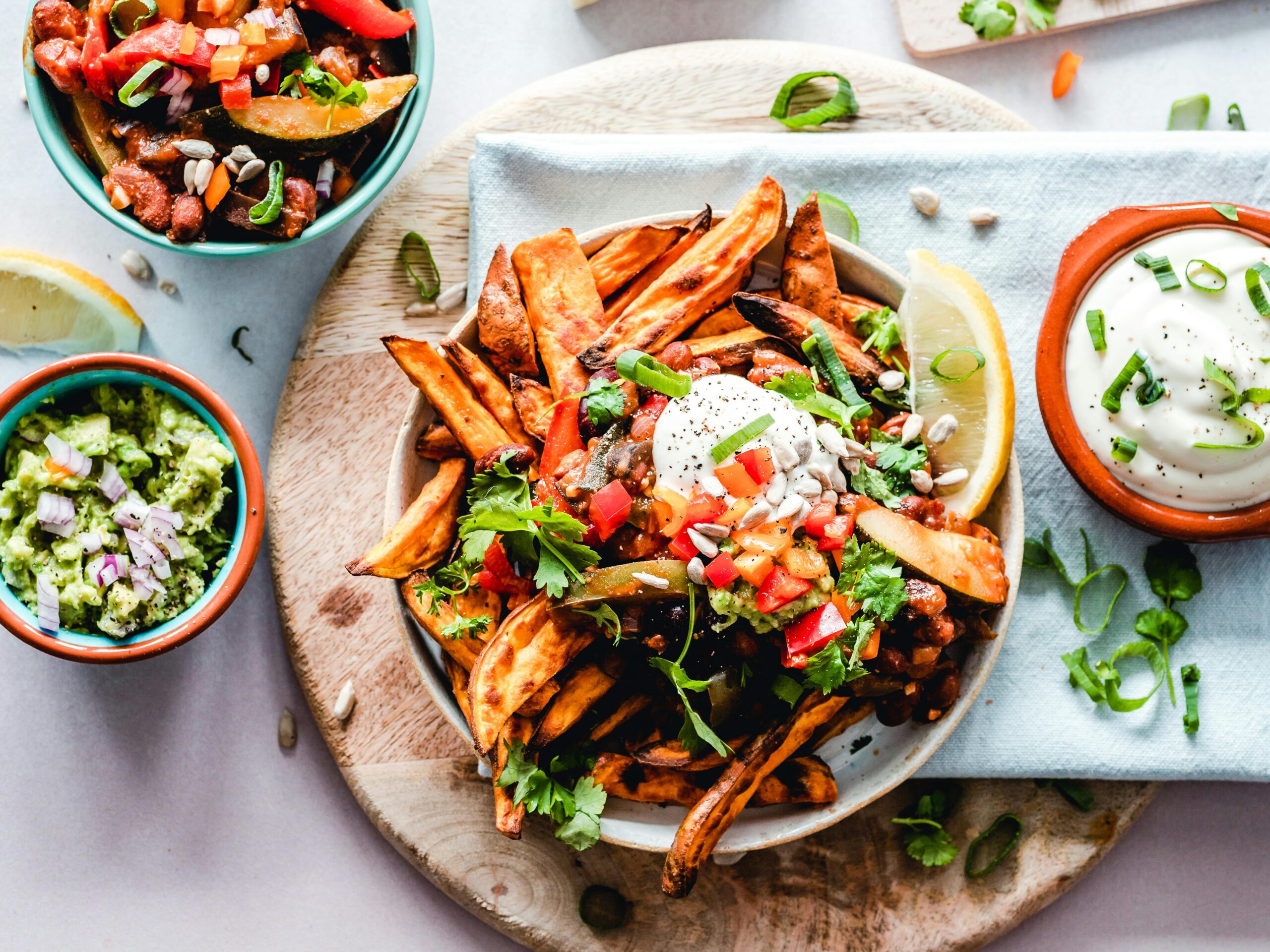
Why Choose CIS for Restaurant Insurance
Commercial Insurance Services (CIS) has built a reputation as a trusted advisor to restaurant owners across the U.S. By providing expert guidance and tailored insurance solutions, CIS helps clients navigate the complexities of business insurance with confidence.
Benefits of choosing CIS:
- Customized policies based on your restaurant’s profile
- Access to multiple carriers for competitive pricing
- Fast, reliable online restaurant insurance quotes
- Dedicated support from industry specialists
- Deep understanding of state regulations and compliance
Whether you’re opening a new restaurant, expanding operations, or revisiting your current coverage, CIS is equipped to provide the insights and protection you need.
Getting a Restaurant Insurance Quote Online
Thanks to CIS’s streamlined digital platform, getting a quote is simple and fast. Here’s how to start:
- Visit the restaurant insurance coverage page
- Fill out the short online form with your business details
- Receive a personalized quote from one of CIS’s insurance experts
- Review coverage options and choose the plan that fits your needs
Factors to Consider When Choosing a Policy
Selecting the right restaurant business insurance policy requires careful consideration of several factors specific to your establishment:
- Size and Scope of Operations: A small café will have different insurance needs than a large fine-dining restaurant with multiple locations. Consider the number of employees, customer volume, and the range of services offered (e.g., delivery, catering).
- Location: The geographic location of your restaurant can influence the types of risks it faces. For example, restaurants in coastal areas may need flood insurance, while those in areas prone to severe weather may require specific coverage for wind or hail damage.
- Type of Cuisine and Service: The type of food you serve and the style of service can impact your insurance needs. For instance, a restaurant with a high volume of takeout and delivery orders may have a greater need for commercial auto insurance.
- Alcohol Service: If you serve alcohol, liquor liability insurance is essential. The amount of coverage you need may depend on the percentage of your revenue derived from alcohol sales.
- Claims History: Your restaurant’s past insurance claims history can influence the cost and availability of coverage. A history of frequent claims may result in higher premiums or difficulty obtaining certain types of coverage.
- Budget: Insurance is an essential expense for any business, but it’s important to find a policy that provides adequate coverage at a reasonable cost. Work with an experienced insurance agent to explore different options and find a balance between coverage and affordability.

Working with an Insurance Professional
Navigating the complexities of restaurant insurance can be challenging. Working with an independent insurance agent or broker who specializes in the hospitality industry can provide invaluable assistance. These professionals have a deep understanding of the specific risks faced by restaurants and can help you:
- Assess your unique insurance needs: They will take the time to understand your business operations and identify the potential risks you face.
- Explore different coverage options: They can explain the various types of insurance available and help you determine which ones are most appropriate for your restaurant.
- Compare quotes from multiple insurers: Independent agents work with a variety of insurance companies, allowing them to shop around for the best coverage at the most competitive prices.
- Customize your policy: They can help you tailor your insurance policy to meet your specific needs and budget.
- Understand policy terms and conditions: They can clarify any confusing language and ensure you understand the scope of your coverage.
- Assist with claims: In the event of a loss, your insurance agent can guide you through the claims process and advocate on your behalf.
Obtaining a Restaurant Insurance Quote Online
While working with an insurance professional is highly recommended, obtaining an initial restaurant insurance quote online can provide a starting point for understanding potential costs. Online quotes can offer a preliminary estimate based on basic information about your business. However, it’s crucial to remember that these online quotes may not be as comprehensive or tailored as a policy developed in consultation with an experienced agent.
Using an online quote tool can help you:
- Get a general idea of potential insurance costs.
- Understand the basic information insurers need to provide a quote.
- Initiate the insurance shopping process.
After obtaining an online quote, it’s essential to follow up with an insurance professional to discuss your specific needs in detail and ensure you have adequate coverage.
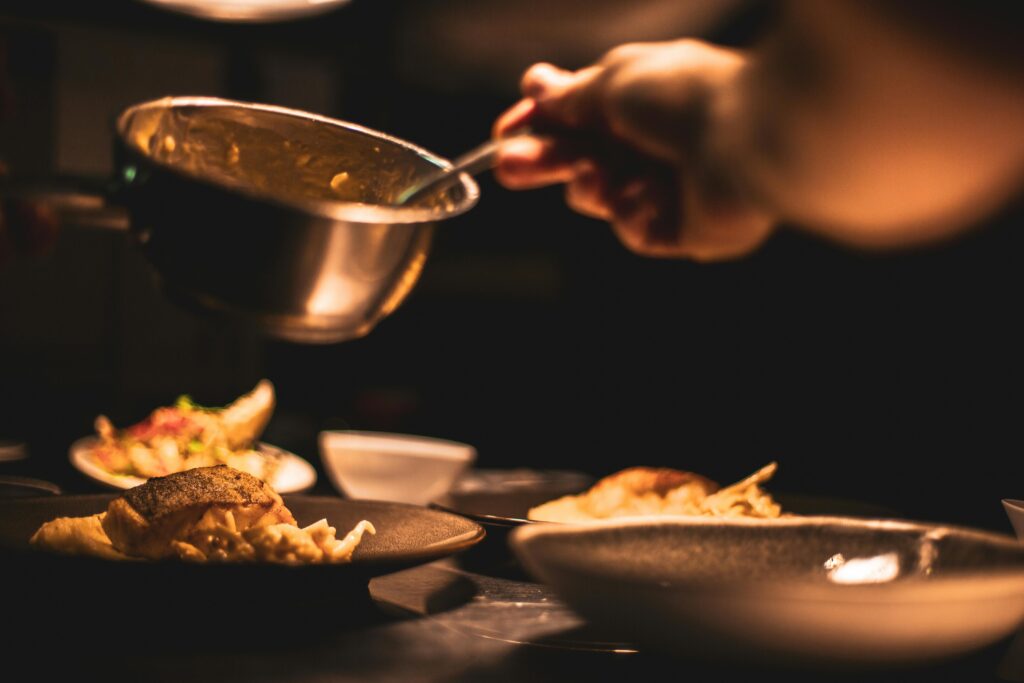
Exploring Crime Insurance: Protecting Against Internal and External Threats
Beyond standard property insurance, restaurants face specific crime-related risks that warrant consideration. Commercial crime insurance can provide coverage for financial losses resulting from employee dishonesty (such as theft of cash or inventory), forgery, computer fraud, and even robbery or burglary. Given the cash-handling nature of many restaurants and the potential for both internal and external threats, this type of coverage can be a critical safeguard for a business’s financial health. It is important for owners to carefully assess their internal controls and determine the appropriate level of crime insurance to mitigate these risks.
Understanding Spoilage Coverage: Protecting Perishable Inventory
Restaurants deal with perishable goods daily, and the loss of this inventory due to various factors can be significant. While commercial property insurance might cover some spoilage resulting from covered perils like fire, spoilage coverage specifically addresses losses due to events like power outages or mechanical breakdowns of refrigeration units. This type of insurance can help recoup the costs of lost food and beverages, preventing a substantial financial hit to the business. Restaurant owners should review their property policy to understand the extent of spoilage coverage and consider adding specific endorsements if needed.
The Role of Umbrella or Excess Liability Insurance: Providing an Extra Layer of Protection
Even with robust general liability coverage, the potential for catastrophic lawsuits exists. Commercial umbrella insurance, also known as excess liability insurance, provides an additional layer of coverage above the limits of the primary liability policies (like general liability and commercial auto). This extra protection can be invaluable in the event of a significant claim that exceeds the limits of the underlying policies, safeguarding the restaurant’s assets and future. Restaurant owners with substantial assets or higher-risk operations should strongly consider this additional layer of financial security.
Business Owner’s Policy (BOP): A Convenient Package for Smaller Restaurants
For smaller, lower-risk restaurants, a Business Owner’s Policy (BOP) can offer a convenient and often cost-effective way to bundle essential coverages. A BOP typically combines general liability, commercial property, and business interruption insurance into a single policy. This can simplify the insurance buying process and potentially lower overall premiums compared to purchasing each coverage separately. However, it’s crucial for restaurant owners to carefully review the specific coverages and limits offered in a BOP to ensure they adequately meet the unique needs of their business.
Considering Terrorism Insurance: Addressing a Modern Threat
While perhaps less common, the possibility of terrorism-related incidents can have a devastating impact on businesses, including restaurants, particularly those in high-traffic areas. Terrorism insurance can provide coverage for property damage and business interruption losses resulting from acts of terrorism. 1 While standard commercial property policies often exclude such events, stand-alone terrorism coverage or endorsements can be obtained. Restaurant owners in urban centers or those concerned about this specific risk should explore their options.
www.smallbusinessinsurancewizard.com
The Importance of Documentation and Record-Keeping for Insurance Purposes
Regardless of the insurance policies a restaurant chooses, maintaining thorough documentation and accurate records is crucial. This includes detailed inventory lists, financial records, incident reports, and maintenance logs for equipment. In the event of a claim, well-organized documentation can significantly streamline the process and help ensure a fair and timely settlement. Restaurant owners should establish clear procedures for record-keeping and ensure their staff understands the importance of accurate documentation.
Navigating Deductibles: Balancing Immediate Savings with Potential Out-of-Pocket Costs
When selecting insurance coverage, restaurant owners will encounter the concept of deductibles. A deductible is the amount the business owner must pay out-of-pocket before the insurance coverage begins to pay for a covered loss. Opting for higher deductibles typically results in lower monthly or annual premiums, which can offer immediate cost savings. However, it is crucial for owners to carefully assess their financial capacity to handle these out-of-pocket expenses in the event of a claim. A balance must be struck between affordability and the ability to absorb potential costs, ensuring that the chosen deductible level does not create an undue financial burden when a claim arises.
Understanding Exclusions: Identifying What Policies Do Not Cover
Just as important as understanding what a restaurant insurance policy does cover is recognizing its exclusions. Exclusions are specific circumstances, events, or types of losses that the insurance policy will not pay for. These can vary depending on the type of coverage and the insurance provider. Common exclusions might include damage from floods (requiring a separate flood insurance policy), certain types of intentional acts, or losses resulting from inadequate maintenance. Restaurant owners should carefully review the exclusions outlined in their policies and discuss any potential gaps in coverage with their insurance agent to determine if additional specialized insurance is necessary.
Exploring Professional Liability Insurance: Protecting Against Service-Related Claims
While general liability covers bodily injury and property damage, professional liability insurance, also known as errors and omissions (E&O) insurance, can be relevant for restaurants that offer professional services beyond basic food service. This might include services like catering with specific dietary consultations, event planning, or even culinary instruction. Professional liability insurance protects the restaurant against claims of negligence, errors, or omissions in the delivery of these professional services that result in financial loss to a third party. Restaurant owners offering such services should consider this coverage to address this unique set of risks.
Getting a Restaurant Insurance Quote Online
Thanks to CIS’s streamlined digital platform, getting a quote is simple and fast. Here’s how to start:
- Visit the restaurant insurance coverage page
- Fill out the short online form with your business details
- Receive a personalized quote from one of CIS’s insurance experts
- Review coverage options and choose the plan that fits your needs
Choosing the right insurance policy for your restaurant is a foundational business decision. The right policy doesn’t just meet legal requirements—it provides peace of mind, financial protection, and resilience in the face of unforeseen events. By working with an experienced partner like CIS, you ensure that your coverage is tailored to your unique operation and growth goals.
For more information or to get your customized restaurant insurance quote online, visit CIS today and safeguard the future of your culinary business.

